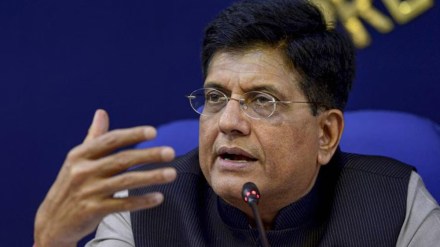The government is looking at another set of measures to ease financing of Micro Small and Medium Enterprises (MSMEs), cut their operational costs, and make exports from them more competitive.
Commerce and industry minister Piyush Goyal said on Thursday that the government is open to developing “alternative financing models” for MSMEs, and reserving land for them in the 20 smart industrial townships coming up at different locations in the country.
The state-run Export Credit Guarantee Corporation (ECGC) will be taking a more proactive role in assisting exporters who are facing delays in getting payments from overseas buyers in the wake of the geopolitical conflicts and disruptions of shipping routes.
“(ECGC credit) being costlier, exporters still prefer to go to the banks (for short-term finance). We are open to the idea of alternative financing models to address the issue,” the minister said at an event organsied by Assocham.
He asked the MSMEs to list the specific issues regarding the problems they are facing in getting credit from banks. Exporters have been complaining about demands from lenders for high collateral or security even after the 90% guarantee on export receivables by the ECGC.
MSMEs account for a third of India’s gross value added (GVA), over 40% of the country’s industrial production and 46% of exports.
In the Budget 2024-25, finance minister Nirmala Sitharaman announced a credit guarantee scheme for MSMEs, under which these units can take loans without having to give any collateral or third-party guarantee. Also, it was announced that term loans would be facilitated for the purchase of machinery by MSMEs.
Furthermore, a new credit assessment model for MSMEs based on digital footprints and cash flows – rather than just assets or turnover — was launched. The schemes are, however, yet to show much results on the ground.
Financial services secretary M Nagaraju has said recently that public sector banks (PSBs) would unveil new products in the next three to four months, to improve credit growth, within a special focus on MSMEs.
Over 90% of the industrial enterprises in the country belong to MSME category, which is the second largest employment provider after agriculture. The sector is also capable of generating self-employment opportunities at a comparatively low capital cost.
While the country’s overall exports grew by 15% in rupee terms between 2021-22 and 2023-24, the outstanding export credit as in March 2024 dropped by 5% over March 2022, according to exporters. This decline has come despite the export sector’s need of more credit for longer duration due to hike in prices of commodities, sharp spurt in freight costs (both sea and air) and the Red Sea crisis leading to longer voyage time and delayed payments.
According to Federation of Indian Export Organisations, the value of export credit outstanding has come down to Rs 2,17,406 crore in the March 2024 quarter from Rs 2,27,452 crore in the same quarter last year.
According to latest data of the Reserve Bank of India (RBI) the outstanding credit to MSMEs stands at around Rs 10.8 trillion till October 20, showing double-digit growth from the year-ago level.
“We are setting up 20 townships, 12 of which we announced three months back. I am happy to commit particular areas earmarked for MSMEs in these townships,” Goyal said, adding that states would be nudged to follow this norm.
Each smart city under the National Industrial Corridor Development Programme will be set up by a special purpose vehicle (SPV) where the state government and central government will have an equal stake.
The 12 of these cities were approved by the Cabinet in August and will come up in Khurpia in Uttrakhand, Rajpura in Punjab, Agra and Prayagraj in Uttar Pradesh, Gaya in Bihar, Dighi Port Industrial Area in Maharashtra, Jodhpur Pali Marwar in Rajasthan, Kopparthy and Orvakal in Andhra Pradesh, Zaheerabad in Telangana, Palakkad in Kerala and Hissar in Haryana.
